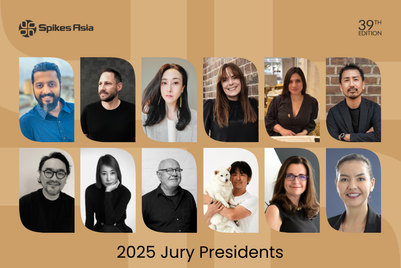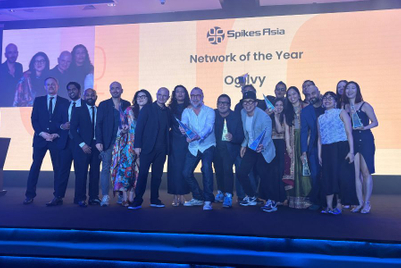
Two sessions on the first day of Spikes Asia 2017 suggested that brands need to put less focus on ads and instead prioritise the generation of real culture and meaningful acts to reach consumers.
In a presentation titled “How do brands create culture, not advertising”, the global group creative director of Twitter, Jayanta Jenkins, said that if they want to make relevant work, agencies should stop pursuing “the cool effect”.
Brands like Apple and Beats by Dre are so popular because they don’t “chase cool” and are therefore able to tap into something authentic, said Jenkins, who also revealed that he knew he was right to make the move to work at Twitter (from a role at Beats by Dre) last year when his friends said the platform was “not as cool as Facebook, or Instagram”.
“I’m fortunate enough to work in an industry where I don’t think of it as work,” said Jenkins. “It’s challenging but we get to express ideas and represent brands and beliefs in a way that create compassion, that unite people. A lot of these concepts don’t come through if you’re chasing cool or chasing data or chasing things that aren’t relevant to us as human beings.”
Jenkins then referenced a selection of people who have personally inspired him by putting qualities like heart, soul and empathy ahead of cool. “What would happen if you choose to inspire the world rather than being cool?” he asked, showing a clip of Alfred Hitchcock giving his definition of happiness as “A clear horizon, nothing to worry about on your plate. Only things that are creative are not destructive.” “Hitchcock chose the path of happiness to allow him to create endlessly and freely - and you can feel that in the work he’s done,” said Jenkins.
Playing other clips including Muhammed Ali reading his poem “The Truth” and Richard Pryor’s “reinventing the ABCs” video (see below), Jenkins asserted: “When you reach for something that goes beyond the idea of cool and reaches consumers, you reach something that’s real. I’ve used these clips as inspiration to realign myself as I’ve gone through my career, to remind myself of some higher principles I can use to connect with people.”
Also speaking on the theme of reaching real people was Danny Searle, chief creative officer at BBDO Asia. The best ideas he saw at Cannes this year were built around acts, Searle said: brands coming and showing instead of just telling.
“Acts can pull people to them,” said Searle, “whereas most ads are pushing.” When he visited New York shortly after State Street Global Bank unveiled its Fearless Girl statue, for example, this ‘act’ had generated such a powerful response that crowd control was needed in the area.
People don’t see acts as ads, continued Searle, meaning they are more likely to want to take ownership of them and share them.
The best acts are also based on great insights, said Searle, giving as examples campaigns like Hungerithm by Snickers, which ran with the tagline “You’re not you when you’re hungry”, or a campaign by Tiffany’s centred on the insight that “Men want to say I love you but cannot seem to find the right words to express it”.

“[These campaigns] are all insightful, so touch the audience personally, and they all tell a story,” said Searle. “When you get all that right, you connect to people not through reason but through faith. And if they have faith in your brand, competitors can’t penetrate or hurt your brand. And anyone who attacks that faith will incur their wrath.”
Only when armed with insights and acts that have invoked faith can brands really justify asking consumers to stand alongside them, said Searle. This was why BBDO waited 18 months to release the ads that accompanied Ariel’s ‘Share the Load’ campaign, which had already built up a strong following thanks to the launch of products like His and Her detergents and labels on clothing that read: “This fabric can be washed by both men and women" in their clothes.
Catch our live coverage of Spikes here and follow us on Twitter for all the latest updates.


.jpg&h=334&w=500&q=100&v=20250320&c=1)
.jpg&h=334&w=500&q=100&v=20250320&c=1)
.jpg&h=334&w=500&q=100&v=20250320&c=1)


.png&h=334&w=500&q=100&v=20250320&c=1)
.png&h=334&w=500&q=100&v=20250320&c=1)










.png&h=268&w=401&q=100&v=20250320&c=1)